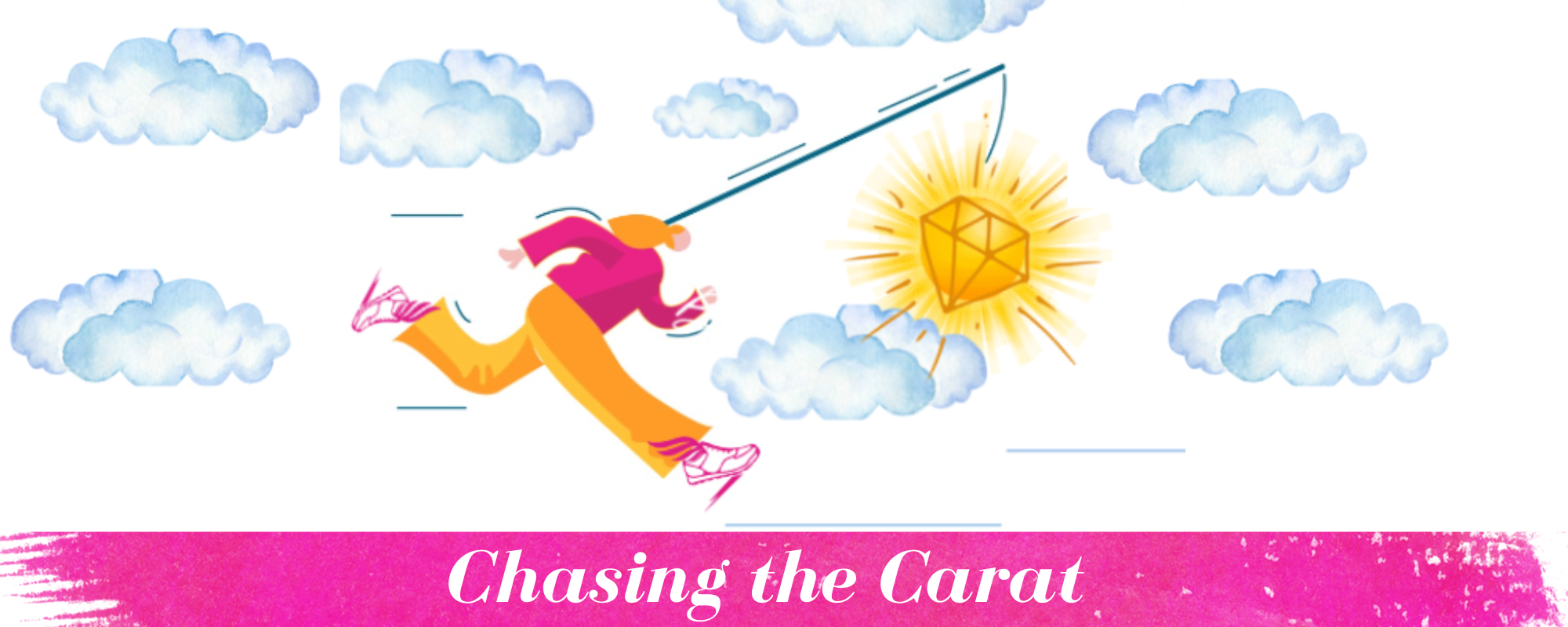Chasing the Carat: Introduction ✨💎✨
|
Introduction: Addicted to LoveI was twenty-one years old when Robert Palmer took home a Grammy for Addicted to Love, a music video that helped define the MTV era. This iconic clip featured the British rock star with an abstract band—a group of look-alike female models with pale skin, heavy makeup, and dark hair, hypnotized under his perfect control. The leading man wore white, his fashion accessories wore black, and behind them a red sky painted a story of danger, seduction, and entanglement. Every move of the video was perfectly choreographed, from the lingering beat of the snare and cymbals, to the length of each model’s skirt—all designed to entice just long enough to pull you in, tease, and then let go at the precise moment. The editing was masterful, layering in Palmer’s soulfulness with his sartorial elegance, allowing him to captivate and steal my imagination with complete subtlety, while flaunting words that would someday change my life forever. You know you're gonna have to face it, you're addicted to love. When this video came out, I was a young mom who had married my first love because we got pregnant. Robert Palmer’s MTV video left me spellbound—watching something I didn’t quite understand and hearing lyrics that had nowhere to land. At 49, the words finally made sense. By then, I had divorced my daughter’s father, been engaged three times, and even called off a wedding a week before the big day. But when the last engagement took me from the high of a romantic Paris proposal to a painful low I never saw coming, I woke up. The betrayal I felt—not just from him, but from myself—sent me researching, after a stranger on the other end of the line used a word I’d never known was real: love addiction. It was then I realized: The lyrics described someone I didn’t know I’d become. Smiling. Complying. People-pleasing. Living for someone else’s life—at the expense of my own. Disconnected from who I really was—because achieving had become more important than being. A pattern had been running my life—and therapists didn’t name it, coaches didn’t see it, and even a one-on-one with Tony Robbins, in front of thousands, didn’t reveal it. That’s why I’m telling this story. And why it starts here. If this stirred something in you and you want to talk it through, I’d love to connect. Not necessarily about love addiction, but something deeper: Knowing who you are. Why you’re here. And what’s quietly calling you forward. If the question “What do I really want?” has felt more frustrating than helpful, I get it. But that’s exactly why I’m sharing this story. Clarity is our super power. Otherwise, I’ll see you next week. And hey—don’t be shy. Hit reply. I’d love to hear what this stirred in you. With love, Christine ⸻ P.S. Not ready for a call but want to go deeper? Here are some journaling prompts to help you uncover more of who you are—and who you were born to be:
2. Within this area (domain), what's causing the most discontent? Describe it on paper. Brain dump. (And what don't you want anymore?) 3. What specific feelings are the strongest? Or, what feelings don't you want to feel anymore? Can you name them? 4. As you write this all down, do you notice a shift? And does naming "it" bring a certain level of relief? 5. What do you want to feel instead? (Hint: Look at the specific feelings you don't want to feel—and flip them.) What's the exact opposite? And what would life look like as you imagine yourself operating from these feelings first? Want to follow along on social media...please click below.
|
Christine Bunnell
Reader Join me for CARAT LIVE in downtown Cincinnati! On July 19, we will dive into Chasing the Carat and what’s unfolding—and what’s still to come. It’s a rare, two-hour live conversation you won’t want to miss. Seats are limited. Register here. Chapter 7. The Betrayal. Although I could feel my heart pounding, I opened the email—which felt sterile and cold. Clicking on the attachment, my eyes raced across and down each line—stopping at the very end just long enough to start all over...
